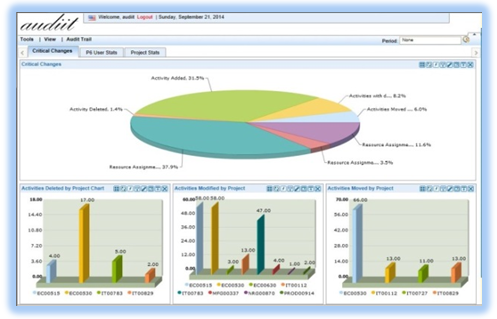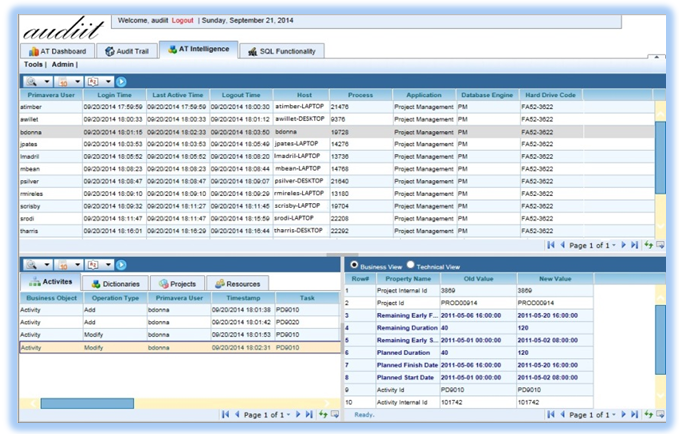
Schedule Delays Analysis with Audit Trail

Even if rules are made to be broken, project schedules are – in theory – made to be observed. Schedule delays are unlikely to please anybody: neither the customer wanting a timely result, nor a contractor with a reputation and a revenue flow to protect. Yet no project schedule is immune to delay. If delay occurs, it is important to pinpoint it as early as possible. It is also necessary to understand why delay has occurred and what caused it to happen.
For these reasons, schedule updates on a periodic basis are a key part of proper project management. If disputes arise, records of critical changes in project schedules may be needed to either avoid claims being made or to settle such claims equitably.
Requirements for Record-Keeping
Many contracts nowadays, particularly in the construction industry, outline requirements and recommendations on project documentation and record keeping. The following are the US Government requirements common for the sub-contractor schedules:
- Baseline Program,
- Periodic Updates (with period specified),
- Resource and cost loading per activity,
- Progress payments tied to schedule updates,
- Report logic changes for each update,
- Time impact analysis to be used for time extensions,
- Activity coding,
- Limited activity durations.
Automation and Audit Information
When project schedule update information is recorded automatically with the Audit Trail application, a high level of audit quality can be maintained and demonstrated through:
- Reporting schedule logic changes update-by-update,
- Changing history to show updates as frequently and as thoroughly as required,
- Verifying that resource and cost loading is done for the critical activities at the right moment, using time-stamp information to help establish if resource information was taken into account when the critical path of the
project was calculated and project end date was defined.
Automated record keeping of schedule changes helps to comply with many contractual obligations. It also provides a solid analytical basis that helps to resolve many project schedule related issues.
Schedule Delays Analysis with Audit Trail
A project portfolio management application assists a company in keeping track of projects, timelines, and shared resources and risks. Oracle Primavera P6 is a leader in this space. The addition of automated record keeping on critical schedule updates with Audit Trail then enhances P6 to turn it into a fully auditable Enterprise Project Portfolio Management (EPPM) system. This makes it possible to:
- Automate schedule change tracking,
- Focus on critical schedule areas,
- Keep project history data for designated periods of time,
- Perform continuous auditing and support schedule analysis needs,
- Enable continuous monitoring, including:Frequency of the updates;
- Logic changes;
- Float changes;
- Duration changes;
- Critical path changes.
- Provide Activity Coding verification.
Audit Trail simplifies schedule delay analysis by providing quick access to the most accurate information on schedule changes. There is no longer a need to manually combine information coming from multiple sources. Re-typing of printed or hard copy data is avoided. Audit Trail provides a critical, additional source of data for a growing number of business applications. These include project health check, critical changes monitoring, regulatory compliance, claims prevention and claims resolution support, business intelligence support, and risk analysis support.
Extensions to Business Objects in General
Besides focusing on specific Oracle Primavera elements, Audit Trail can be used to monitor changes relating to business objects in general. Records are data stamped and accompanied by user information such as user id, user session, and application used at the time when the changes were introduced. The system also provides analysis and reporting tools to extract a maximum of business value from the information being monitored.










